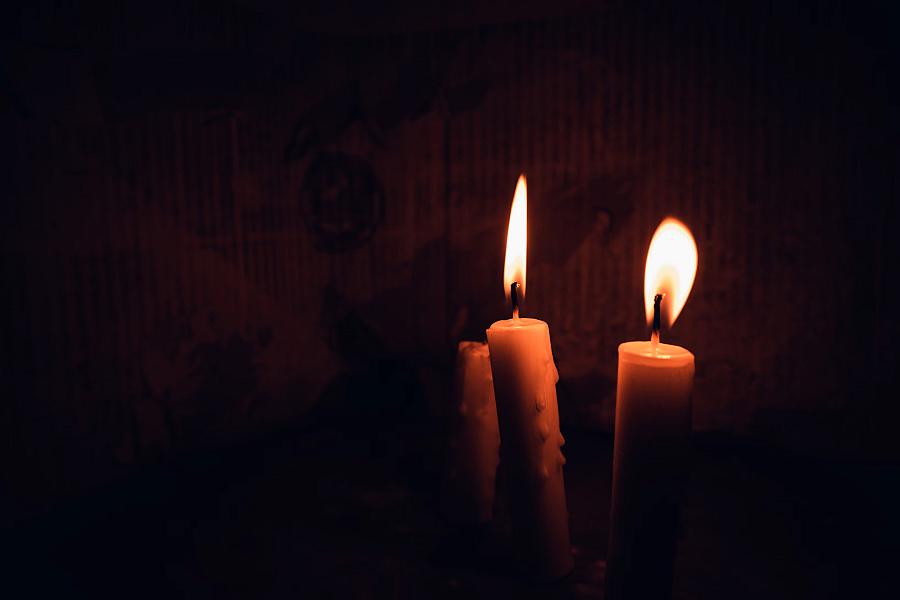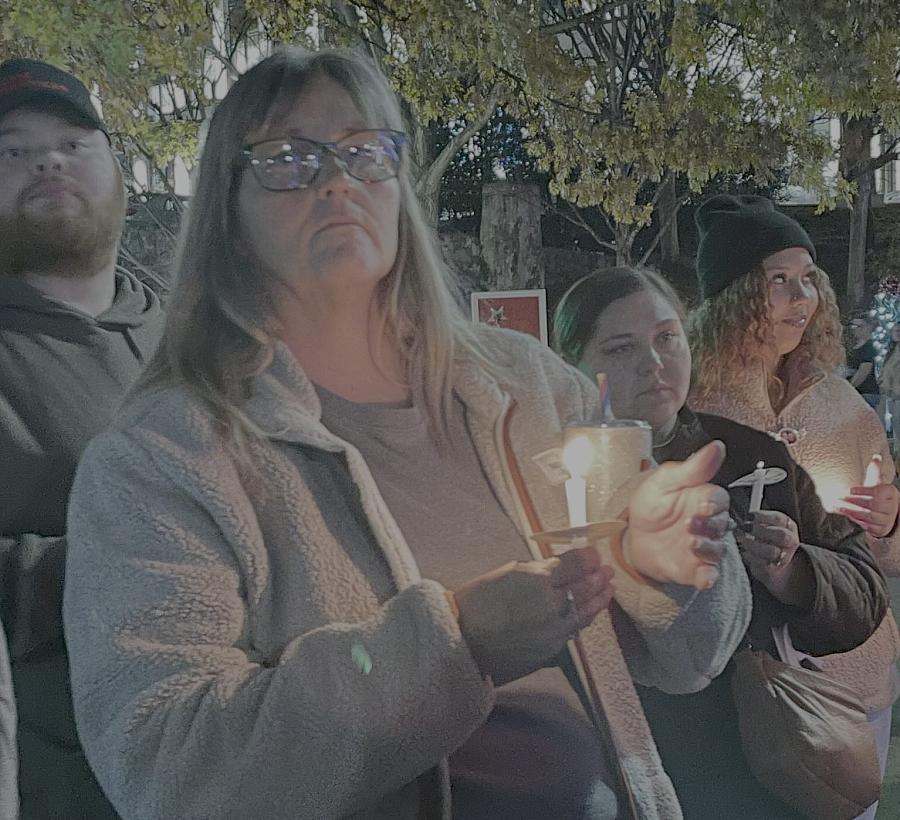For series on bereaved children, the trust of my sources meant everything

Road Ahead
As I sat on the sofa of a doublewide trailer on the outskirts of Huntsville, Alabama, I gazed out the front window and visualized the scene that Libby Walker was describing: an ambulance arriving, sirens blaring and lights flashing. Paramedics hooking her daughter, Heaven Leigh Walker, to a ventilator, rolling her out on a stretcher, placing her unresponsive body in the back. In that moment, Walker told me, she knew her daughter would not be revived.
The arc of Walker’s story is tragically familiar. Heaven Leigh, a joyful, loving mother, began taking oxycodone for pain after she shattered her knee in a fall. She became dependent on the drug and eventually progressed to heroin and fentanyl. Heaven Leigh spent almost a year in jail on charges that originated with a traffic stop and a missed court date, and just a few weeks after she was released, she died of a fentanyl overdose.
The aftermath of that story is also common. But too often, it’s overlooked: Heaven Leigh, 30, left behind three motherless children. Libby Walker is raising her granddaughters on the salary of a school bus driver. Nationally, about 2.4 million children are being raised in “grandfamilies.” States with the highest opioid prescribing rates, like Alabama, have the highest proportion of grandparents raising their grandchildren. Adults in the prime parenting ages of 35 to 44 have the nation’s highest rate of opioid overdose death.
That is just one ripple effect of a broader shadow epidemic of orphanhood that I explored in a four-part series on “Forgotten Children” for MindSite News. During the pandemic, parental deaths rose by 46% due to COVID, an increase in gun violence, and opioid overdoses. Children who lose a parent, particularly in a sudden death, are at risk for depression, anxiety, and academic and behavioral problems. Children of color and those from the poorest families face the greatest risk, yet they often live in “bereavement deserts” where supportive resources are lacking. Although $50 billion in opioid settlement funds are being disbursed by states and local governments to address the impact of the opioid crisis, very few grandparents raising grandchildren have received any assistance to help with their unexpected second cycle of parenting.
To tell the story of these “forgotten children,” I was honored to talk with Libby Walker and others like her who were willing to share the details of the worst day of their lives and to talk about the impact on the grieving children left behind. There is no amount of data or expert commentary that can fully describe the scope of a problem like orphanhood and child bereavement.
- Image

Libby Walker of New Market, Alabama, attends an annual vigil for her daughter and others lost to drug overdoses.
But as a journalist, how do you find the Libby Walkers? There’s no simple path. It takes patience, perseverance, empathy, and a bit of luck. Understandably, many people who have suffered a tragedy don’t want to talk to a reporter about it. It’s especially difficult if you’re reporting nationally and need to find someone outside of your home community, where you have longstanding connections.
It doesn’t work to do a massive Google search and send an email or Facebook message a stranger. I know because I tried that. And I got no response from multiple efforts. I probably just seemed like another scammer. Therapists were sympathetic — they want to raise awareness of child grief and trauma—but they can’t refer any of their patients due to ethical considerations. Even community leaders came up empty.
It took months for me to find the main sources for my stories. I had several false starts — promising leads that didn’t work out. I ultimately connected with families through referrals from people who are dedicated to helping and supporting grieving families, such as those at advocacy groups or grief support centers. Sometimes I followed a chain of contacts to find someone willing to talk. I had already done some deep reporting on the underlying issues, speaking to experts in child bereavement and researchers whose work quantified parental deaths and provided evidence of the emotional and behavioral impact on children. That gave me credibility to get past the first link in the reporting chain.
I thought deeply about why someone would agree to talk to me. The people who care about these orphaned children want the world to know about them and their needs. For example, a psychologist told me that the Juvenile Justice Intervention Center in New Orleans had started a grief support group. (My initial story focused on child grief related to gun violence.) I was skeptical that the JJIC would allow access to a journalist — the juvenile jail is generally off-limits — but Lee Reisman, superintendent of Youth Supportive Services, is a licensed clinical social worker who wants the public to understand the trauma caused by neighborhood gun violence. I was able to interview three teens about the losses they experienced from a young age and the lessons they learned from the grief group. (She arranged for permission from a parent or guardian.) I was also able to talk with a family bereaved by gunfire in New Orleans and a NOLA community group promoting alternatives to violence.
I feel deep gratitude for Reisman and others who opened their doors to me. For Lavinia Cody, a school counselor in Winslow, Arizona, who created a grief support curriculum based on Navajo culture and traditions and whose own mother and grandmother died of COVID. For Cheryl Nez in Winslow, whose daughter was 12 years old when she lost her father suddenly to COVID; because of pandemic restrictions, the family wasn’t even allowed to have a burial ceremony. For Keith and Edie Lowhorne, who founded Grandparents as Parents in Huntsville and are passionate in their work supporting grandfamilies. For Amanda Joyce Jensen, who traveled four hours each way to a grief center in Salt Lake City, Utah, to get support for her then-4-year-old son when his father died of cancer and there were no services nearby. For Erica Taylor, a grandmother in New Orleans who took in her seven grandchildren after her daughter was shot in the head by a former partner.
I spent a couple of hours sitting on Taylor’s sofa, looking at old photos and learning how, with support from a lot of therapy, she helped the children cope as they all rebuilt their lives. I tried to convey to her just how much it meant to me, personally and professionally, that she trusted me with her story. Her response stays with me: “If it could save somebody’s life and protect somebody’s child from going through what these children went through, I don’t mind.”
In the end, we have a shared mission. I want my reporting to build awareness and inspire more grief support. I couldn’t do it without them.

